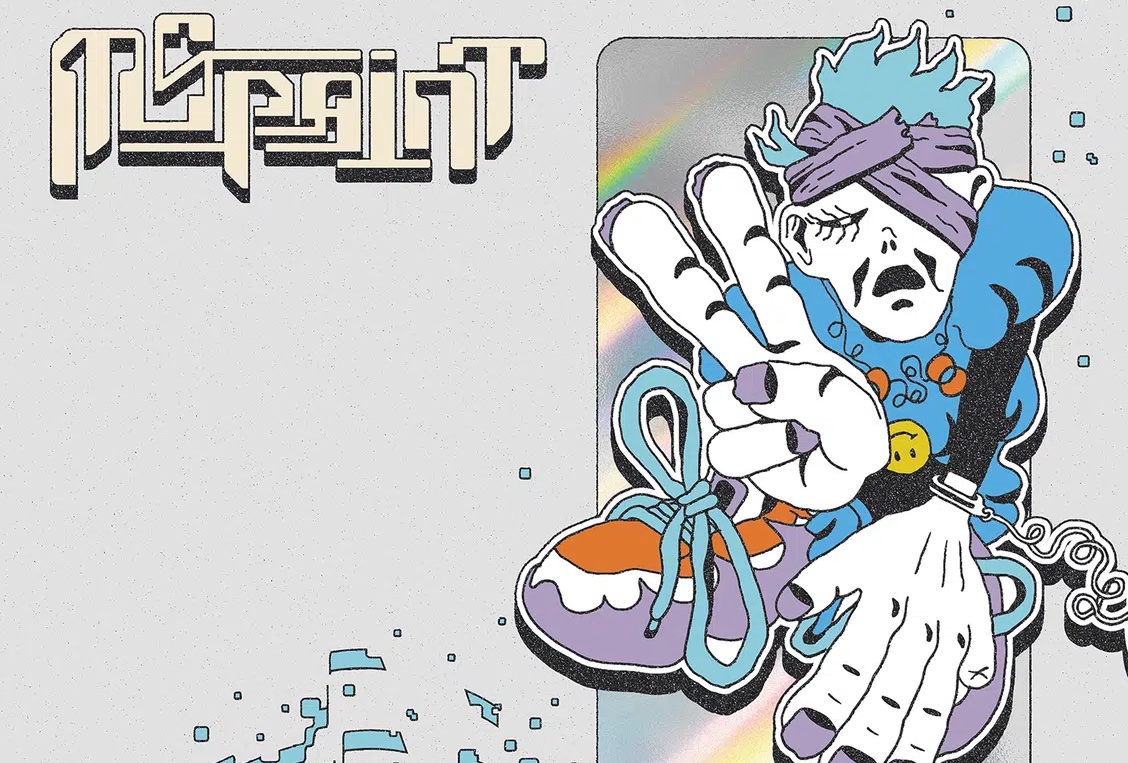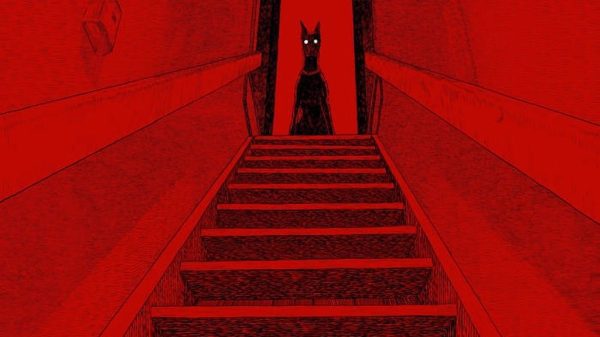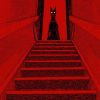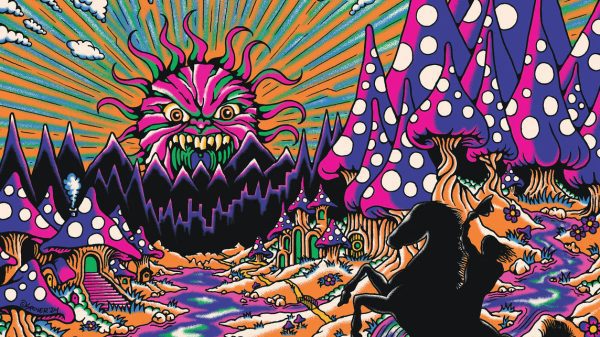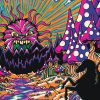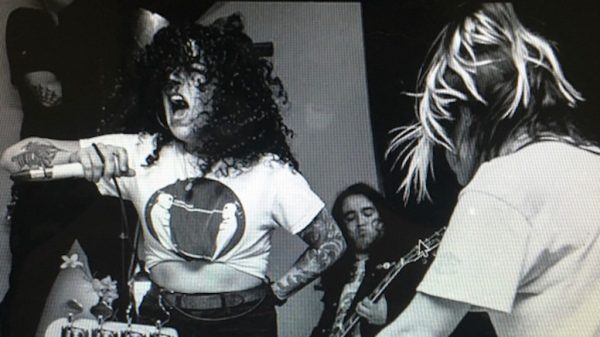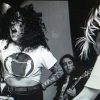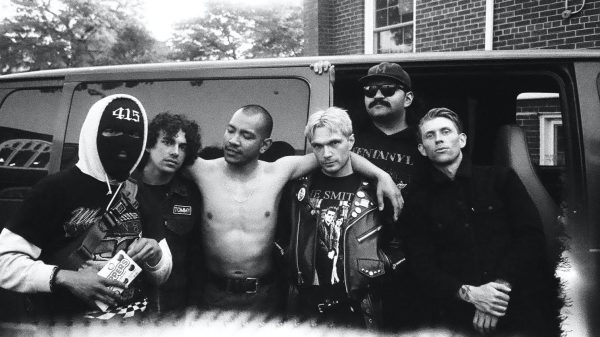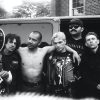According to Dio Cassius, when giraffes were first brought to Rome, they were named Cameleopards. This name made sense to the Romans because the animal was so strange to them that they had to find in it similarities to animals that were familiar to them–camels and leopards–even if those animals barely had a passing resemblance to the new creature. The name stuck and was passed on as the name for the animal, even being the name for the animal in English until the late 19th century.
Human brains are wired for pattern recognition, and when faced with something new and strange, our brains seek to make connections to things that are well-known to us. This likely has something to do with identifying threats and food, but in our modern lives, it might just manifest as describing novel styles of music.
After an MSPAINT concert shakes the world for all attendees, one can hear those who witnessed it making all manner of comparisons, striving and failing to pin the band’s style down as something already encountered. Does it sound like the Pixies? Death Grips? One Day As A Lion? Sonic Youth? Jamiroquai? JPEGMAFIA? Mindless Self Indulgence? God Lives Underwater? It’s like describing a dream or a psychedelic experience. Words fail.
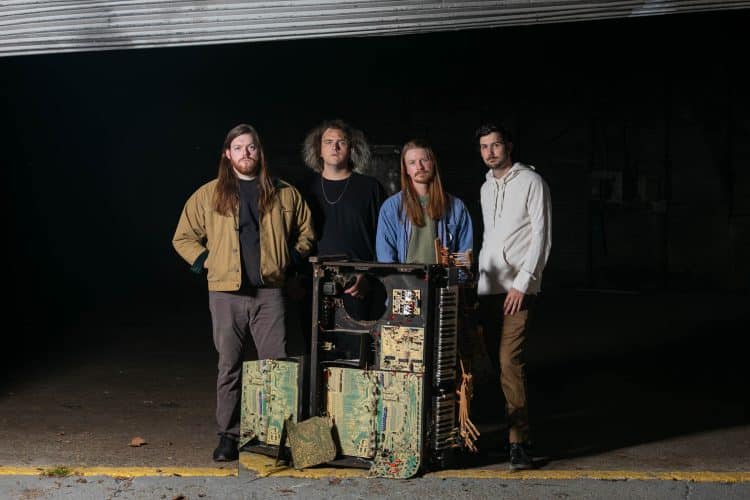
Also like a psychedelic experience, there is a synesthetic quality to the genre-defying and instantly memorable songs that MSPAINT creates. The music is composed as if the writers can taste and see the notes they produce, considering how outside the norm but how intuitive and obvious the melodies are. The songs, even if they defy categorization, find something deep, hidden, and precious in the listener, something that needs validation and healing.
Cvlt Nation did a review of the band’s debut Post-American here. Now, the band has been kind enough to answer some questions about this very special album.
First, can you introduce the band members and mention any other creative projects they’d like to share?
Deedee – Vocalist – notable projects: Skinman, Stellatone, Liquid Shapes
Nicholaus Panella – Synth – notable projects: Nighdrator, Schaefer Llana
Quinn Mackey – Drums – notable projects: Liquid Shapes
Randy Riley – Bass
How would you describe the early artistic vision for the band when you first came together?
Randy: Three out of the four of us have all primarily played guitar in all our other projects. Deedee approached Nick and Quinn about starting a new band; the initial and really only intention was that there would be no guitars.
Your debut self-titled EP really became a huge favorite among fans of all styles of music, especially punk, post-punk, and hardcore. Was the reception consistent with your expectations? What do you think it is about MSPAINT that has so struck a chord with so many people?
Randy: We honestly had zero expectations. We recorded the demo, played a handful of shows in the final months of 2019, and talked about doing a local tape release. That’s pretty much as far as we got. Everything came to a screeching halt as the pandemic in 2020 effectively put any further aspirations well out of reach. If any silver lining can be found it had a lot of people stuck at home with more time to listen and search for anything to take their mind off what was happening at the time. People may gravitate to our sound for the same reasons we like creating it; we’re all doing something that’s personally unconventional for the members of the band and maybe that translates to folks listening.
You’ve toured extensively based on the material of your first release. How has touring influenced your creative process?
Nick: This band really challenged us to do something new because most of us are doing things we’ve never done before. I bought a synth just months before we started the band. Randy had filled in on bass in other projects but never approached it as a main creative outlet. Dee Dee had never been in a band where they weren’t playing guitar or bass. Quinn has only gotten more handsome and strong as time has gone on. Touring not only allowed us to explore our instruments but the songs we’d been working on for the record more thoroughly. Also, the bands we’ve been lucky enough to tour with have all been so good at what they do. It’s a very needed kind of pressure to know you gotta kill it because you know the other bands on the bill are going to do the same.
With the extremely positive reception for your first release, how have you managed your approach to your debut LP, especially considering the high expectations you’ve set for your fans?
Randy: Aside from a few new songs and some minor changes, we’ve had the album mostly written since we did our first real tour with Spy & Gel. Getting to play those songs and see people’s reactions to stuff we’d only been able to play in our practice space over the course of a year and some change was affirming and honestly surprising but we didn’t approach the music any differently based on positive or negative reception to the demo.
What were some of the musical influences for this release? What about lyrical influences?
Deedee: Lyrically, there are artists such as Elliot Smith and Elizabeth Powell whose lexicon I always found interesting. I love artists with intense voices like Gangsta Boo as well that sort of attack the music they are a part of. I would say that my biggest influence though is definitely motivational speeches, not one in particular but anytime someone is trying to get people to rally around them I feel like that vulnerability translates into getting people excited and focused on the content they are engaging with.
Where so many bands take an approach to lyrics that is meant to be angry, vengeful, or defiant, your lyrics seem to feel more disappointed, maybe disenchanted? On your previous release, but especially on Post-American, there is a strong emotional component and a consistent sense of a world that doesn’t live up to its promise. Can you comment on that?
Deedee: I see it more as trying to get people to engage with that emotional component within themselves and sort of as they read the lyrics or sing them to themselves that it empowers them to feel hopeful in the face of adversity. Everyone goes through ups and downs but an important aspect of that is how you react to what happens to you. I feel like the goal with the lyrics is to help people feel powerful and confident while being realistic, knowing that it takes a lot of support and care to feel empowered.
Stylistically, MSPAINT is truly in its own category, and doing something so sonically different is risky, especially during a time when there is so much pressure to be “heavier than thou.” Synths, open-space, and mid-tempo rhythms are a swing. Have you ever felt pressure internally or externally to do something more consistent with what is selling most records lately?
Nick: We’ve been playing music for years in a place that’s pretty off the beaten path. For the majority of the time spent working on these songs we never really imagined that there would ever be a physical record to sell. Being able to release Post-American on this scale was only made a reality by a ton of other people investing their time and belief that we had made something other people needed to hear. Our music is about us and what we see and feel, and we craft the music to reflect that. Most of the response has been so positive from other much heavier bands, we feel more inspired to just be ourselves. I think heavy music can be portrayed as a pissing contest sometimes. Maybe in spirit, it is, but most of the people we’ve interacted with aren’t exactly chasing trends. They’re just making the music that feels right to them and experiencing success because that’s how everyone else feels too.
Do you anticipate that your off-the-beaten-path approach to this music might encourage others to explore more musical territory? Is this the start of a new sound for punk?
Nick: I think we’re less progenitors of some new form of punk and more of a reflection of a larger trend that’s been happening for a while now. Because of streaming and the internet, we’re all being exposed to tons of new music all the time. Our sound and other bands that blend genres are just a byproduct of people making music that correlates with what they’re exposed to. Looking at it this way, we’re certainly not the first. We really do hope our music encourages other people to take chances, though. Nothing would make us happier.
How did you get connected with Convulse, and what has it been like to work with Adam?
Randy: Initially, Adam from Convulse reached out to us to see if we had any plans to press the demo to vinyl and to see if there was a future release in the works that we’d like to potentially put out through them. Shortly after, Adam brought up the possibility of having us come to play the Convulse Fest celebrating the 3-year anniversary of the label. This would effectively be one of if not the first out-of-town show we would play since 2020. Their community was profoundly inspiring. Seeing how much Adam genuinely cared about bands first-hand was really all we needed. Ever since driving out to Denver, we’ve truly just been locked in with Adam and everyone in that city. Adam consistently puts on good bands and treats every release like its the most important record on the planet. That mindset is very rare in terms of labels, big or small. Convulse is something special and we’re grateful to be a part of it.
Ian Shelton and Taylor Young have had so much experience working with bands of so many styles. Has collaborating with them influenced your songwriting and/or recording process in a meaningful way?
Quinn: Absolutely. Before going to LA to record at The Pit, Ian flew to Hattiesburg to sit in on some practices and to make suggestions on how we’d go about executing the songs in the studio. It was during these few days that two additional songs were added to the record at the behest of Ian, explaining that we’ve got a great record but he didn’t quite “hear a hit”. “Delete It” and another track was the product of collabing with him on distilling our sound and not overthinking our process.
Nick: We had a much shorter experience with Taylor since we were meeting him for the first time in his studio. He’s a quiet guy, but we bothered him with a bunch of really stupid questions about what this or that thing did. I think the biggest thing that Taylor helped us with is solidifying tones and sonic structure. We really had to go through a process to achieve the sounds and the overall impact of our sound that we hear live on the record. We tried several different amps, amp heads, and pedals. Different synths and mixing techniques, etc. I think Taylor even ran the final bass mix through yet another fuzz pedal after we were done. He helped take what we all heard live in our practice space and commit it to record.
Can you describe the music scene in Mississippi? Who are some local bands that deserve more national attention?
Nick: It’s a small community of musicians doing different kinds of music all around the state. We all play shows together regardless of style sometimes because there aren’t a ton of bands, but the ones that do play are very passionate about what they do. There’s a ton of work here that goes unseen.
Some of our favorites that we’ve listed are bands or musicians that have been working for a while and we think are deserving of more attention: Hartle Road, Rod Smoth, Ray Kincaid, The Squirms, The Vitamin Cea, Beach Novels, Newscast, Suicide Doors, Detects, Year of the Vulture, Andy Pate, Hal Kolodney, Stephen Curley.
What should people know about MSPaint? About Post-American?
Deedee: We’re a band from Hattiesburg, Mississippi. The album attempts to portray that American art and its influence often perpetuates emulation or a fixed position for what is considered “good”. We challenged ourselves as musicians to create something that doesn’t align with just musical influences but challenges us emotionally and artistically.
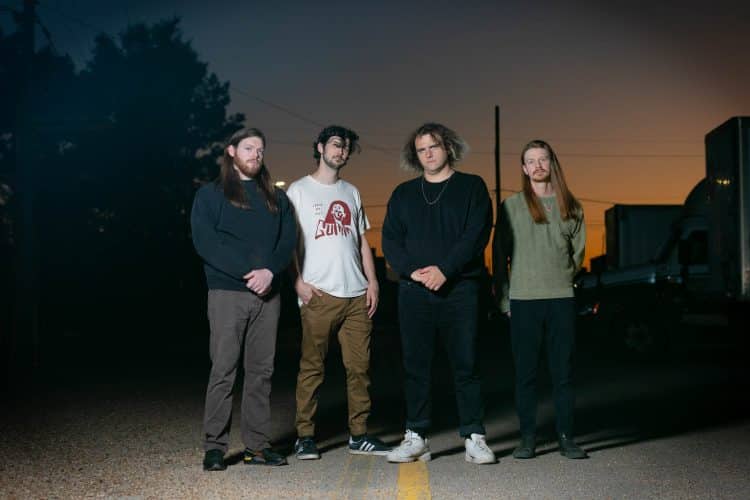
Post-American was recorded & mixed by Taylor Young at The Pit Recording Studio.
It was co-Produced by Taylor Young & Ian Shelton.
It was mastered by Nick Townsend at Infrasonic Sound.

